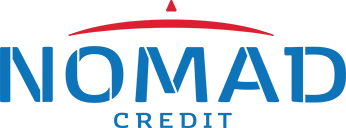Table of Contents
- Advantages of studying MBA in Canada
- Top MBA colleges in Canada
- Types of MBA programs in Canada
- Top demanding MBA specializations in Canada
- Eligibility for MBA in Canada
- MBA in Canada requirements
- MBA in Canada fees
- MBA in Canada cost
- Courses after MBA in Canada
- Job opportunities after MBA from Canada
- Frequently Asked Questions
Furthermore, the country is safe for international students, ranking 3rd in the US News and World Report.
MBA in Canada offers an opportunity to learn and live alongside people from around the globe to avoid stereotyping and form more informed opinions crucial for business success. Earning an MBA degree from Canada is, therefore, promising with global recognition and exciting job prospects for business-minded individuals.
Advantages of studying MBA in Canada
- Global recognition: An MBA degree from a Canadian institution is globally recognized. It prepares students to excel in an increasingly interconnected and competitive business environment.
- Networking opportunities: MBA programs in Canada offer extensive networking opportunities with industry professionals, alumni, and guest speakers, which can be valuable for career advancement.
- Career prospects: Canada’s strong economy and business-friendly environment offer ample job opportunities for MBA graduates in various sectors.
- Cost-effective degree: Compared to other popular study destinations like the United States and the United Kingdom, studying for an MBA in Canada can be more affordable, with reasonable tuition fees and living costs.
- Global exposure: Canadian MBA programs often emphasize a global perspective. Canada is a hub for innovation and research, with many MBA programs emphasizing entrepreneurship, innovation management, and collaboration with industry partners.
Top MBA colleges in Canada
MBA colleges in Canada are top in academic excellence and teaching quality. They offer full-time, part-time, and online MBA degrees according to your choice and eligibility.
Looking for top universities in Canada for an MBA? See the table below with their world rankings for MBA 2024:
| MBA University in Canada | QS MBA World Ranking 2024 |
| Rotman School of Management, University of Toronto | 40 |
| Desautels Faculty of Management, McGill University | 73 |
| Ivey School of Business, Western University | 74 |
| Sauder School of Business, University of British Columbia | 89 |
| Smith School of Business, Queen’s University | 92 |
| Schulich School of Business, York University | 98 |
| Alberta School of Business, University of Alberta | 121 – 130 |
| John Molson School of Business, Concordia University | 131 – 140 |
| HEC Montréal | 151 – 200 |
| DeGroote School of Business, McMaster University | 151 – 200 |
Types of MBA programs in Canada
Full-Time MBA: Full-time MBA programs are traditional MBA programs that are 2 years long and involve internships and study tours. It equips students with valuable practical skills necessary for organizational success.
Part-Time MBA: Part-time programs allow students to study while working. Usually, part-time MBA classes are conducted on weekends and there will be morning or evening batches, providing flexibility for working professionals.
Executive MBA (EMBA): Executive MBA programs are mainly chosen by working professionals to learn valuable leadership and management skills. They are offered part-time in most cases.
Top demanding MBA specializations in Canada
| Finance | Marketing | International Business |
| Logistics & Supply Chain | Healthcare Management | Data Science and Business Analytics |
| Human Resource | IT System | Operations Management |
| Risk Management | Real Estate Management | Environmental Management |
Eligibility for MBA in Canada
Fulfilling the eligibility requirements is crucial in your MBA application for Canada. Every university has set its own eligibility criteria you need to follow. Here is a general list of eligibility requirements for MBA in Canada:
- A bachelor’s degree in any discipline, of 3 – 4 years
- Work experience of 1 – 3 years in general. It can be up to 5 years or not mandatory at all, depending on the institution’s choice.
- Entrance test results – GMAT (600 – 700) or GRE (320 – 340)
- English proficiency requirements – IELTS (6.0 – 7.0), TOEFL (90 – 110), PTE (65 – 80), or Duolingo (120+)
MBA in Canada requirements
Make sure to submit the following documents while applying for MBA in Canada:
- Academic transcripts
- Provisional Attestation Letter (PAL) from the province of study
- Statement of Purpose
- Work experience proof (if any)
- 2 – 3 Letter of recommendation
- MBA Essays (if asked)
- Updated CV/Resume
- GMAT or GRE scorecard
- IELTS/TOEFL/PTE/Duolingo scores
- Bank statement showing enough funds
- Recent photographs
- A student visas
MBA in Canada fees
MBA in Canada’s cost for international students varies depending on the university, course length, province, and city of living. In general, 40,000 – 70,000 USD can be your MBA tuition fee in Canada.
Refer to the table below for tuition fees at different universities for MBA programs:
| University | One-year Tuition Fee |
| Rotman School of Management, University of Toronto | 50,000 USD |
| Desautels Faculty of Management, McGill University | 51,250 USD |
| Ivey School of Business, Western University | 63,300 USD |
| Sauder School of Business, University of British Columbia | 74,500 USD |
| Smith School of Business, Queen’s University | 67,300 USD |
| Schulich School of Business, York University | 59,000 USD |
| Alberta School of Business, University of Alberta | 32,500 USD |
| John Molson School of Business, Concordia University | 51,600 USD |
| HEC Montréal | 59,100 USD |
| DeGroote School of Business, McMaster University | 55,600 USD |
MBA in Canada cost
MBA in Canada costs include tuition fees, academic expenses, and living costs. The living expenses can vary from city to city and depend heavily on your personal lifestyle. On average, the living costs in Canada for an international MBA students can be estimated as follows:
| Category | Average Yearly Expense |
| Accommodation | 6,000 – 10,000 USD |
| Textbooks | 1,500 USD |
| Laptop | 1,200 – 1,500 USD |
| Food | 3,000 – 4,500 USD |
| Personal Expenses | 1,000 USD |
| Public Transportation | 1,000 USD |
| Health Insurance (UHIP) | 600 USD |
Courses after MBA in Canada
Getting a certification in a specialized field can boost your career opportunities after an MBA. Here are some top courses you can consider after MBA in Canada:
- Chartered Financial Analyst (CFA)
- Project Management Professional (PMP)
- Certified Information Systems Security Professional (CISSP)
- Certified Management Accountant (CMA)
- Certified Public Accountant (CPA)
- Master of Science (MSc)
Job opportunities after MBA from Canada
You can explore job opportunities across different industries after completing your MBA in Canada. MBA jobs in Canada are paid well in general. Depending on your experience and expertise, you may get a higher salary.
Top companies for MBA jobs in Canada: Apple, Amazon, Deloitte, Accenture, TELUS, Shopify, Suncor Energy, Rogers Communications
| Job Roles | Average Salary in Canada |
| Finance Manager/Analyst | 57,000 – 74,000 USD |
| Marketing Manager | 57,000 – 84,000 USD |
| Consultant | 42,000 – 64,000 USD |
| Business Analyst | 42,000 – 60,000 USD |
| Supply Chain Manager | 43,000 – 70,000 USD |
| Human Resources Manager | 56,000 – 74,000 USD |
Summary
Doing your MBA in Canada helps with quality education and high job prospects. You can pursue full-time, part-time, or online MBA degrees of 1- or 2-year duration in public and private universities in Canada. Read the blog well and understand your top university options, documents required, cost of studying and living and job options after MBA in Canada.
Taking your Canada MBA decision may require more thought concerning application, finances, documents, and visa. Leave the burden to Nomad Credit, your study abroad partner. Book a call now and benefit from profile-based university suggestions, education financing guidance (help in finding minimal-interest loan options), SOP drafting, and student visa application at ZERO COST. Get on board with Nomad Credit now.
Frequently Asked Questions
How long is the MBA duration in Canada?
Typically, a regular full-time MBA program is 2 years long in Canada. There are one-year programs as well, which you can choose if you wish. Part-time and online MBA programs are also available that can be 1 to 2 years long.
Is work experience required to apply for the 1-year program?
One-year MBA programs in Canada often require applicants to have work experience.
Is an MBA in Canada worth it for international students?
Yes. Canada is one of the top destinations for earning an MBA degree. Having your MBA from Canada unlocks global opportunities for your career success.
Which MBA program is most demanding in Canada?
There are various MBA specializations in Canada for students. All of them are promising, and you may prioritize your interests in opting for an MBA specialization.
Is it easy to get a job in Canada after MBA?
Getting a job in Canada after MBA is possible, according to the vacancies reported, your skills, and overall economic conditions. Currently, international students get enrolled to various job positions after MBA at a moderate rate.
Once I am done with my MBA then how long can I stay in Canada?
After completing 2 years MBA program in Canada, you can stay up to 3 years with work permit.
How much percentage is required for an MBA in Canada?
Typically, 2.0 – 3.0 GPA is the minimum requirement for MBA admission in Canada. Every university has set a particular GPA that international students must take note of before applying.
Is there any age limit? I completed my B.Tech in 2010. Am I still eligible?
Generally, there is no age limit to apply for MBA in Canada. You can apply for MBA programs despite your if you are over 18 years of age.
How to finance an MBA in Canada?
Financing your MBA in Canada can be done via education loans or self-funding. Education loans are the top option if you don’t have enough funds, as they allow you to study without worrying about repayment. For guidance on minimal-interest education loan options and a hassle-free application, talk to Nomad Credit’s counselor now and get the benefits at zero cost.
Can I work and study simultaneously to repay my MBA education loan?
If you work part-time and earn enough to repay, you can start repaying your education loan while studying.

